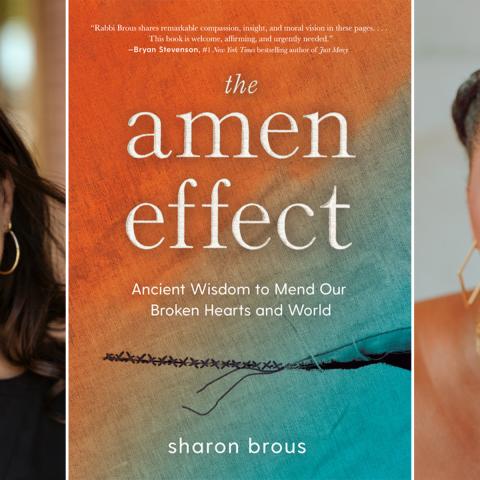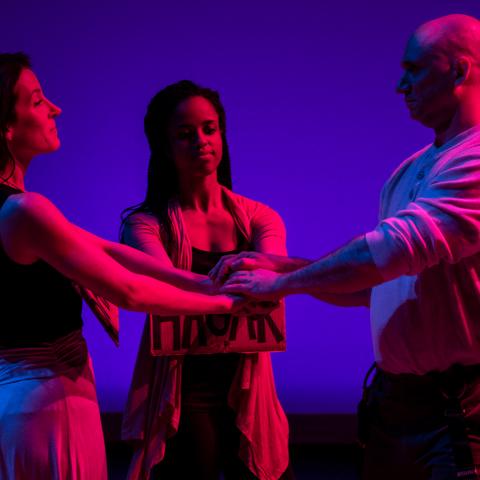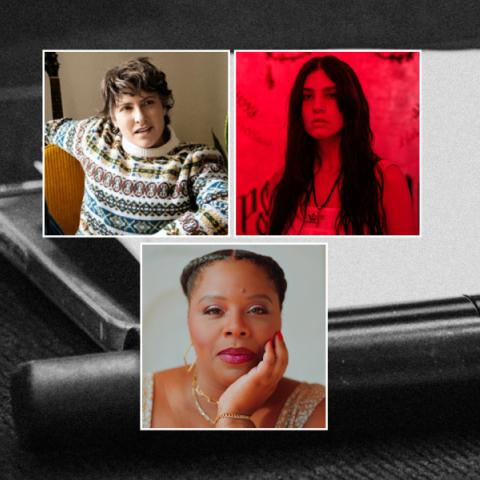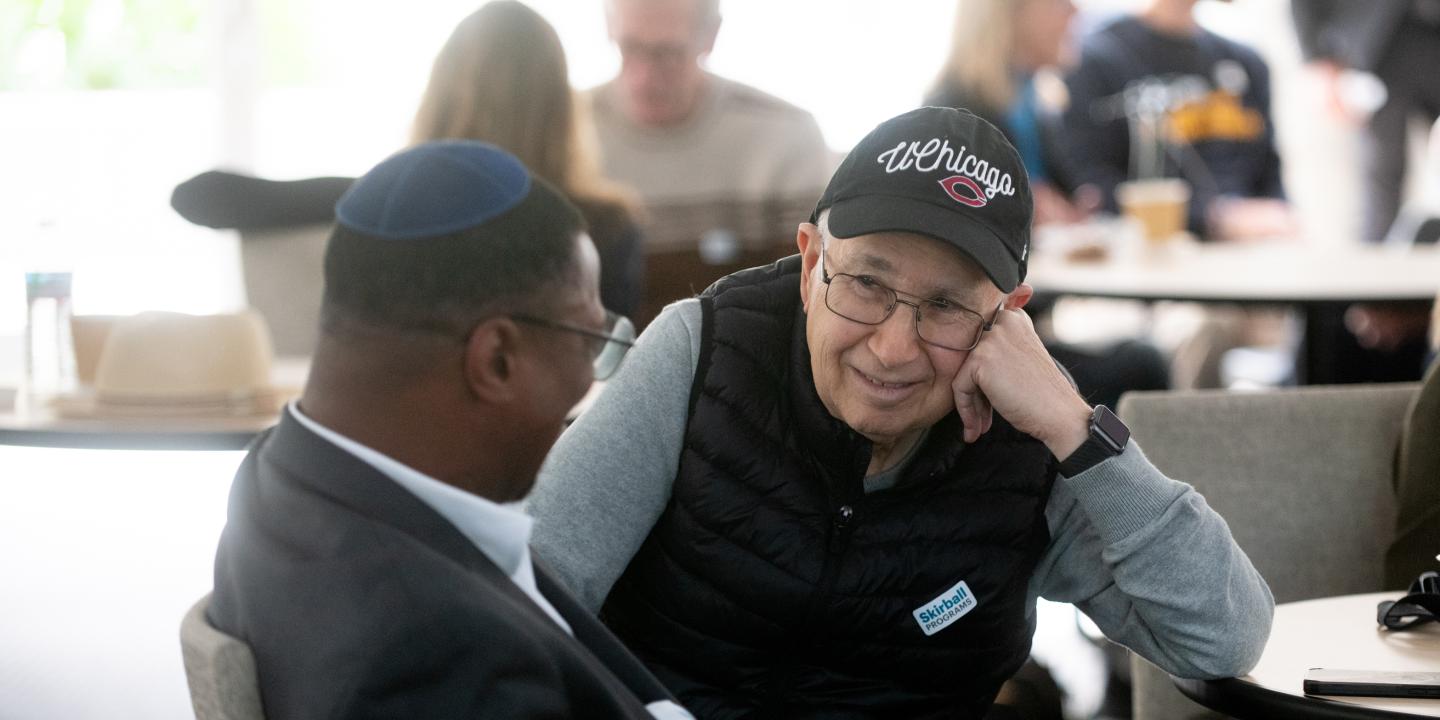
Bridging Histories: Black-Jewish Dialogues for Peace and Unity is a year-long artist and healer residency with artist and abolitionist Patrisse Cullors that will encourage a deepening of relationships between Black and Jewish community members. The residency will engage a select group of participants representing key communities and constituencies focusing on four critical components: community meals, meditative cultural traditions, reading sessions, and dialogues co-facilitated with the Skirball's Rabbi in Residence, Beau Shapiro; as well as a guided, academic research study led by Dr. Avriel Epps.
Additionally, as part of her residency, Patrisse will participate in a number of Skirball programs to engage with the general public and continue to create space for dialogue and understanding.
Patrisse Cullors
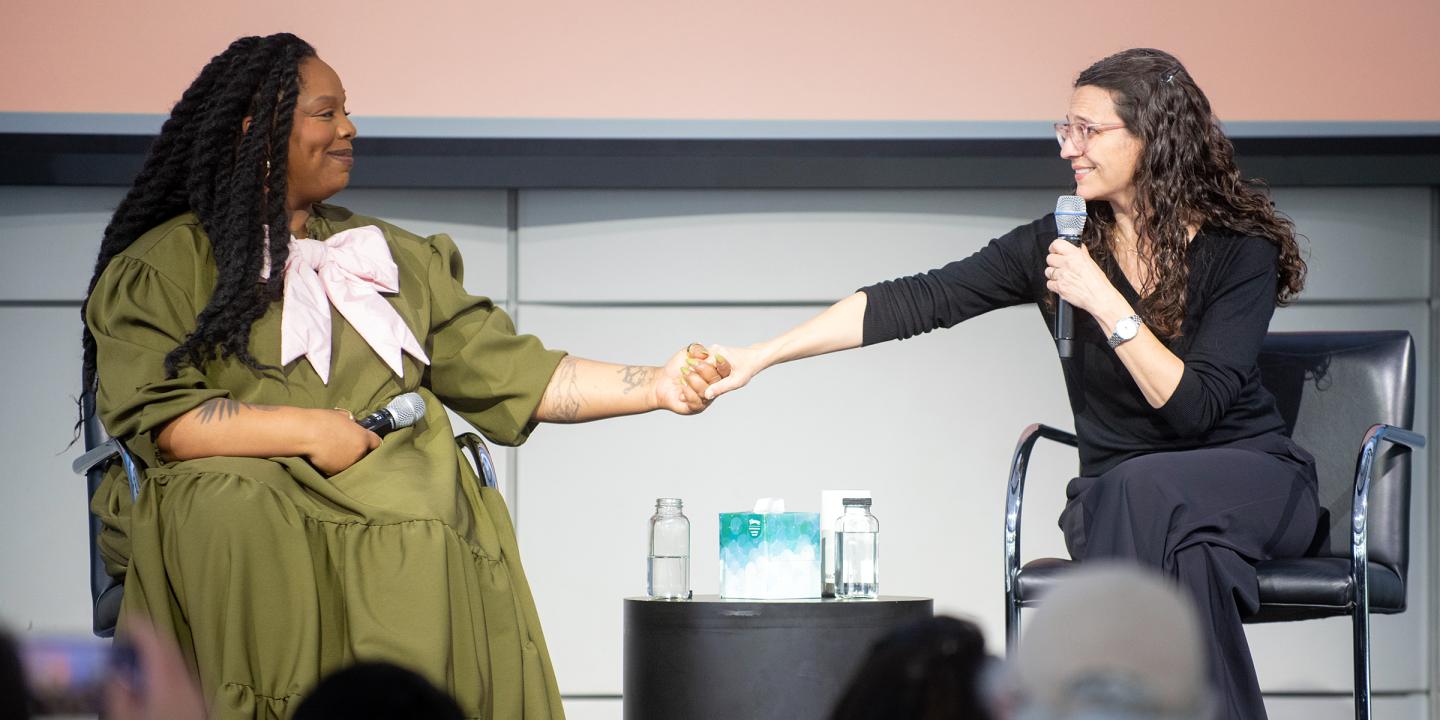
Patrisse Cullors and Rabbi Sharon Brous speak about holding compassion for each other and the world around us, in a discussion about Brous' book, The Amen Effect: Ancient Wisdom to Mend Our Broken Hearts and World. Photo by Lindsey Best.
Patrisse Cullors is a New York Times bestselling author, educator, artist, and abolitionist from Los Angeles, CA. Her work has been featured at The Broad, The Geffen Contemporary at
MOCA, Frieze LA, The Hammer Museum, The Fowler, and a host of theaters, galleries, and museums across the globe. Patrisse has won numerous awards for her art and activism.
In 2020 she launched a one-of-a-kind online MFA program at Prescott College. She also launched the Crenshaw Dairy Mart with fellow artists Noé Olivas and Ali Reza Dorriz.
Her current work and practice is focused on “Abolitionist Aesthetics,” a term she has advanced and popularized to help challenge artists and cultural workers to aestheticize abolition. She has recently founded The Center For Art and Abolition- a trailblazing nonprofit organization dedicated to empowering abolitionist artists and leveraging the transformative power of art to catalyze social change. Patrisse’s mission is to invite all of us to grow toward abolition through intergenerational healing work that centers love, collective care, and art.
Rabbi Beau Shapiro
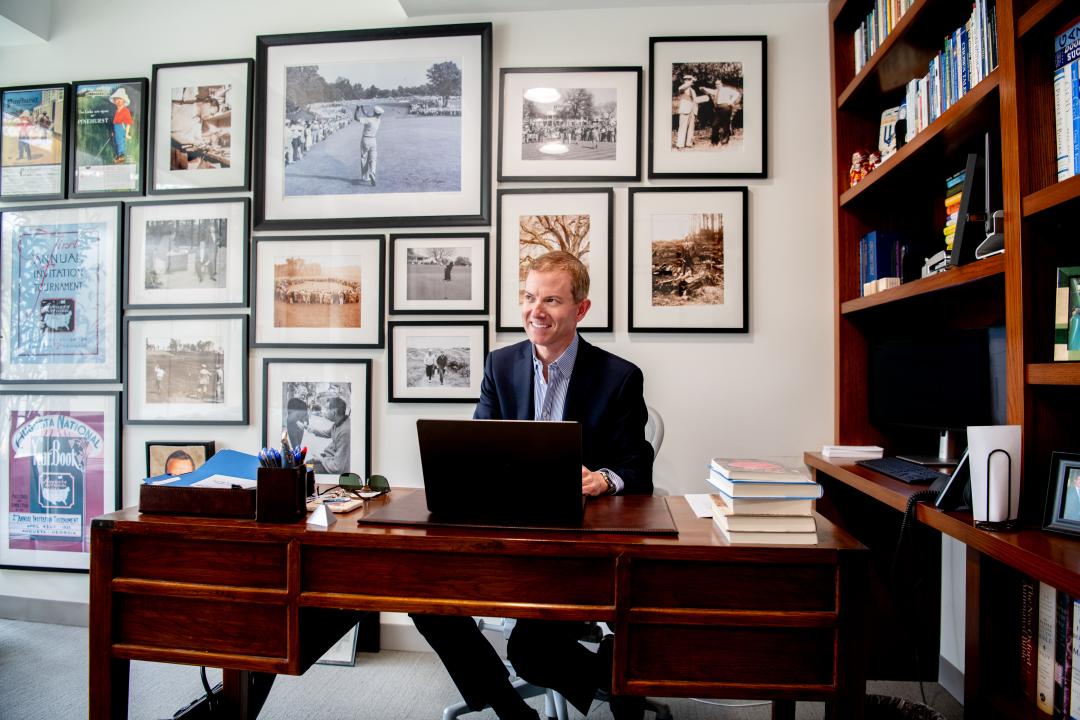
Rabbi in Residence Beau Shapiro in his office at the Skirball. Photo by Lindsey Best.
Rabbi Beaumont Shapiro joined the Skirball Cultural Center in the newly created position of Rabbi in Residence in June 2023.
Previously, Rabbi Shapiro served as Rabbi at Wilshire Boulevard Temple in Los Angeles, helping to lead the second-largest synagogue in the United States. During his tenure at the temple, Rabbi Shapiro created and oversaw the founding of the Karsh Family Social Service Center, a non-profit, non-religious, co-located, integrated, social-service center that provides critical and accessible social services to the community at large.
His career at Wilshire Boulevard Temple spanned twenty years. For twelve years he served as Rabbi and, before that, as a Rabbinic Intern, Song Leader, and Educator. Prior to Wilshire Boulevard Temple, Rabbi Shapiro was the Youth Director at Temple Israel of Hollywood.
Rabbi Shapiro received his Rabbinic Ordination in 2011 from Hebrew Union College - Jewish Institute of Religion, where he also earned a master’s degree in Hebrew Letters in 2009. Additionally, he holds degrees in Religious Studies and Cinema-Television from the University of Southern California (USC).
Dr. Avriel Epps
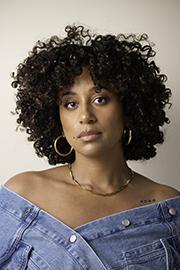
Dr. Avriel Epps
Dr. Avriel Epps (she/they), a Black and Jewish Civic Science Postdoctoral Fellow at Cornell University’s CATLab, holds a PhD in Human Development from Harvard University and an SM in Data Science from Harvard’s School of Engineering.
A scholar and advocate, Avriel’s research focuses on the intersections of algorithmic bias and identity development across racial, gender, and sociopolitical spectra. She aims to understand the complex ways that algorithm design and computer-mediated social expectations—often communicated through artificial intelligence systems—impact the beliefs, behaviors, and health of developing humans. As co-founder of AI4Abolition, she is dedicated to building collective power with and around AI through open-source tools and AI literacy programs in marginalized communities.
Avriel has been recognized and supported by The Ford Foundation, MacArthur Foundation, Roddenberry Foundation, and National Center on Race and Digital Justice, among many others.
Her work is featured in both scientific journals and popular outlets, including The Atlantic and the Emmy-nominated PBS documentary "TikTok, Boom." She speaks to an audience of over 70,000 followers on her Instagram and TikTok, with short-form videos garnering over 25 million views. She is the author of the forthcoming A Kids Book About AI Bias.
Bridging Histories FAQ
Why are the Skirball and Patrisse Cullors co-facilitating Bridging Histories?
The partnership between the Skirball and Patrisse Cullors materialized in the aftermath of the October 7 attack on Israel by Hamas. In the days following the events of October 7, Patrisse reached out to the Skirball to offer support and solidarity. Our partnership grew from those conversations and our shared belief that every life contains within it a divine spark and is equally deserving of dignity and kindness.
Why is the Skirball investing in Black/Jewish community connections?
As minority groups that have faced perpetual discrimination, many Jewish and Black Americans have drawn parallels between their own individual struggles for safety and equality in the stories of one another. Additionally, there is an intersectionality between the two groups with tens of thousands of Black Jews living in the U.S. Today, as threats of antisemitism and racism continue to undermine our democratic freedoms, there has never been a greater need for solidarity between Black and Jewish communities.
What is the academic research study about?
Conducted by Dr. Avriel Epps, of Cornell University’s Citizens and Technology Lab (Dr. J. Nathan Matias, PI), the purpose of this research project is to explore how Black, Jewish, and Black Jewish community members in Los Angeles experience and address issues related to antisemitism and anti-Black racism within their respective communities. Additionally, the research will examine how participants’ interactions on social media and the recommendations they encounter online relate to their views and feelings towards broader Black and Jewish community relations. This study seeks to provide insights that could foster greater understanding and cooperation between these communities more broadly.
Who can participate?
Participation in the first series of facilitated dialogues is by invitation only.
Throughout the year-long residency, additional programs will be offered and open to all on a first-come, first-served basis. Examples of these larger public programs include The Amen Effect book talk with Rabbi Sharon Brous and the Juneteenth Seder with the Inheritance Theater Project.
To attend future public programs, look for updates on our website and sign up for our email newsletter, And, if you’d like to receive emails specifically related to our Black/Jewish community connections programming, please email bridginghistories@skirball.org.
Donor Support
Bridging Histories: Black-Jewish Dialogues for Peace and Unity is part of the Skirball Cultural Center's ongoing work to highlight and explore connections between Black and Jewish Americans and is made possible by generous support from the Righteous Persons Foundation.
